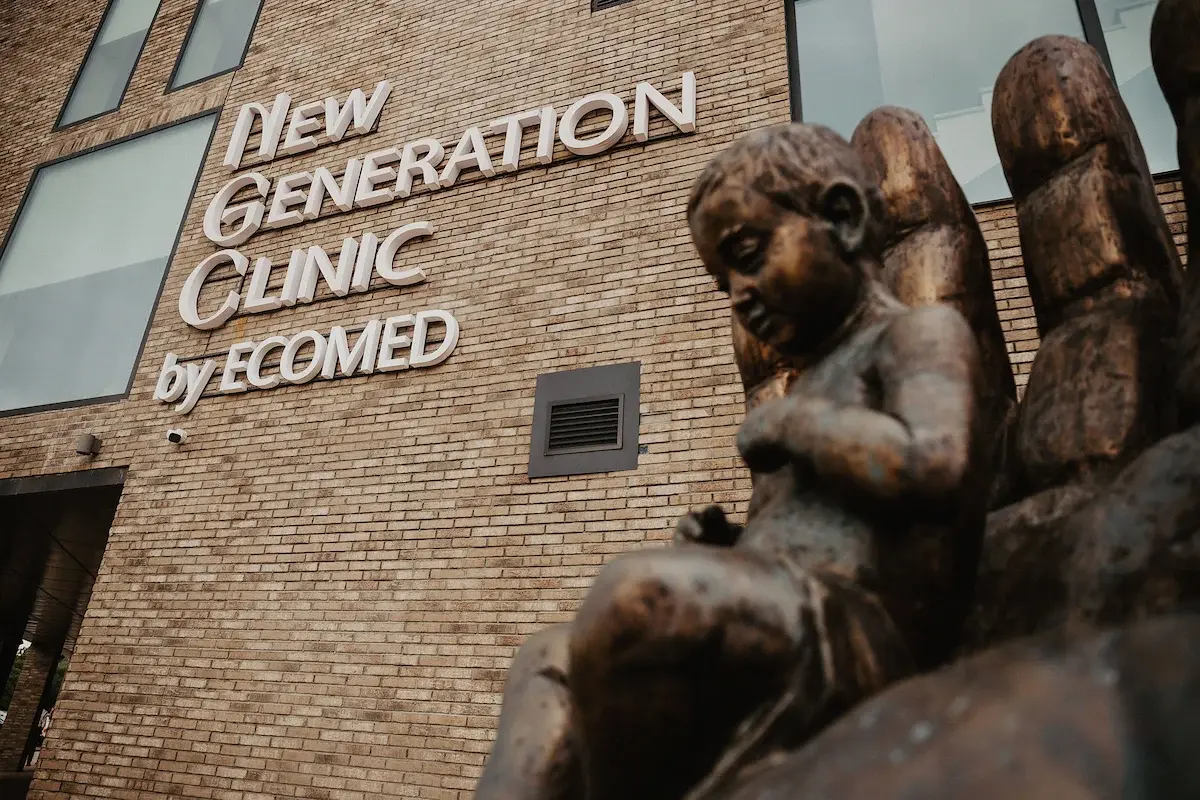
Eco and its impact on women's health
In vitro fertilization (IVF) is a modern and popular method of solving the problem of infertility, which has been performed for over 40 years. At the Reproduction Center "New Generation Clinic" in Almaty, we strive to provide our patients with the best conditions for successful fertilization and minimize health risks. In this article, we will consider the features of the procedure, possible consequences for the woman's body and the risks of hormonal stimulation.
The essence of the IVF procedure
IVF consists of several stages:
1. Comprehensive examination of the couple: Includes laboratory tests (hormonal screening, assessment of infectious status, etc.) and instrumental diagnostics (ultrasound, etc.) to identify all possible causes of reduced fertility.
2. Ovarian stimulation: Performed using a short or long protocol. In the first case, stimulation occurs in one cycle with the intake of hormonal drugs, in the second case, gonadotropin-releasing hormone agonists are taken in the previous cycle to synchronize the process of follicle formation.
3. Follicle puncture: It is carried out when the follicles reach a size of 18-20 mm.
4. Fertilization of eggs: The eggs are prepared and combined with sperm in the laboratory.
5. Embryo transfer: After incubation for 3-5 days, the embryo is placed in the uterine cavity.
6. Confirmation of pregnancy: After two weeks, a laboratory test is performed to determine the level of hCG (human chorionic gonadotropin) to confirm the pregnancy.
Possible complications and risks
1. Ectopic pregnancy: This complication occurs in 1-2% of cases and with natural conception.
2. Multiple pregnancy: Development of 2 or more fetuses at the same time. This complication is a consequence of the implantation of several embryos.
3. Ovarian torsion: This is extremely rare and involves twisting of the gonad's feeding stalk.
4. Ovarian hyperstimulation syndrome (OHSS): Characterized by enlarged ovaries, increased permeability of the vascular walls, edema, and fluid accumulation in the cavities. The risk of OHSS can be reduced by proper procedure planning.
Risks during pregnancy
Pregnancy after IVF is at risk due to luteal phase insufficiency. To compensate for the low concentration of progesterone, its analogues are used, which reduces the risk of miscarriage and placental insufficiency.
Consequences of IVF for women over 40-50 years old
When planning IVF for women over 40 years old, the following factors are taken into account:
· A small number of follicles in the ovaries
· Reduced quality of oocytes
· High incidence of miscarriage
To assess the ovarian reserve, anti-Müllerian hormone tests and ovarian ultrasound are performed. In the case of a low ovarian reserve, IVF with minimal stimulation or in a natural cycle may be offered.
Debunking myths
· IVF does not provoke cancer: The risks of oncology are increased not by the IVF procedure, but by the woman's existing pathologies.
· IVF does not undermine health: The procedure is safe subject to a preliminary examination and observation by a doctor.
· IVF does not cause permanent weight gain: Progesterone drugs can temporarily retain fluid in the body, but after the end of stimulation, the weight stabilizes.
The IVF procedure performed at the New Generation Clinic Reproduction Center in Almaty is modern, effective and safe. We take into account all the individual characteristics of our patients and use advanced technologies to minimize risks and ensure a successful pregnancy. Our specialists are confident in the result and are ready to quickly respond to any unwanted reactions of the body. You should not be afraid of IVF because of potential harm, which is currently unproven.
We are always ready to provide high-quality medical care and support you on the path to motherhood.
 392, N. Kapparov str., Almaty
392, N. Kapparov str., Almaty Mon-Fri 08:00-17:00 | Sat 08:00-13:00
Mon-Fri 08:00-17:00 | Sat 08:00-13:00

 WhatsApp
WhatsApp Instagram
Instagram